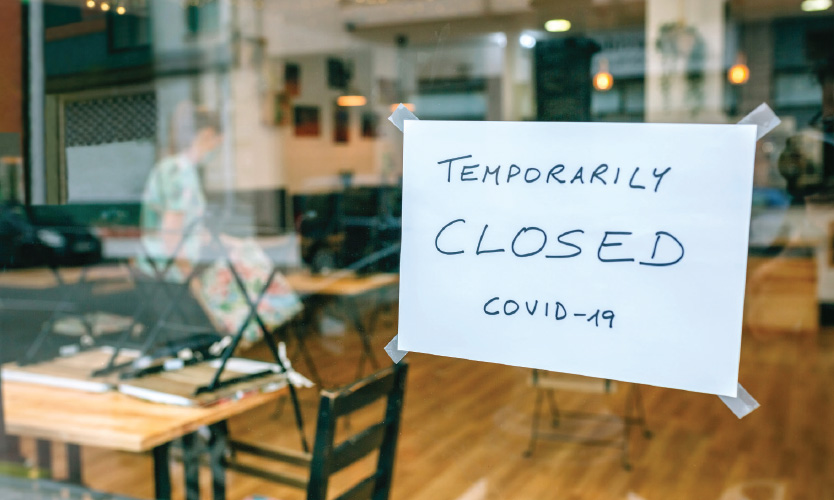Perspectives: North Carolina Supreme Court gets it right on COVID business interruption coverage
- August 22, 2025
- Posted by: Web workers
- Category: Finance

On Dec. 13, 2024, in North State Deli LLC et al. v. Cincinnati Insurance Co. et al., the North Carolina Supreme Court became the first state high court to rule that businesses that purchased property insurance policies without a virus exclusion are entitled to coverage for business interruption losses suffered because of the COVID-19 pandemic.
With this decision, North Carolina joined Vermont as the only states whose high courts have ruled that policies providing coverage for “physical loss or damage” cover COVID-19 losses.
Previously, the Vermont Supreme Court ruled in Huntington Ingalls Industries v. Ace American Insurance that COVID-19 business interruption losses are potentially covered while denying the insurance companies’ motion to dismiss. The case has not yet been resolved.
The ruling in North State Deli — a unanimous decision from a court known for dissenting opinions — got this important insurance law question right on many levels.
As an initial matter, the court applied basic rules of contract construction following established precedent under North Carolina law. The court recognized that insurance policies, like all contracts, must be interpreted based on their plain language and “should be given that construction which a reasonable person in the position of the insured would have understood it to mean.” It also recognized that “provisions granting coverage must be read expansively, and provisions excluding coverage must be read narrowly.”
On another fundamental point, the court correctly acknowledged that protection of the ability to use commercial property is precisely what is insured under a commercial property insurance policy, holding that property “loss” surely occurs when it is no longer usable for its insured purpose, as a policyholder would reasonably expect. Thus, when the restaurant owners lost physical use of their properties as restaurants due to the pandemic orders, they experienced a direct physical loss.
In evaluating whether the insurance policy in question covered losses due to COVID-19, the decision in North State Deli held to critical history about policy terms and the coverage afforded thereunder for losses resulting from viruses or communicable disease outbreaks. That includes the following key facts rarely acknowledged in COVID-19 coverage decisions:
- In 2003, insurance companies paid millions of dollars on SARS-CoV-1 business interruption claims under policies that covered “direct physical loss or damage.”
- In the aftermath of the 2002-2003 SARS outbreak, the insurance industry quickly developed a broad virus exclusion to establish a contractual basis for excluding such losses in the future.
- In the years that followed, virus exclusions quickly became the norm in commercial property insurance policies. The National Association of Insurance Commissioners reported that in 2020, before the COVID-19 pandemic, nearly 83% of property policies incorporated an exclusion for virus or pandemic. Of course, that meant 17% of policies purchased in 2019-2020 covered losses due to a virus.
- Indeed, some insurance companies made it clear that they still intended to cover losses due to a virus and even petitioned insurance regulators to sell policies without virus exclusions to make it clear that those policies covered losses caused by viruses. For example, in a 2010 regulatory filing, Strathmore Insurance Co. explained that pandemics are “a type of loss” covered under its property policies absent a virus exclusion, stating that losses due to viruses “fall largely in Business Personal Property (‘stock’) and Business Interruption/Time Element coverage segments.” Strathmore explained that such coverage is valuable to policyholders because, among other things, “it is possible that some type of disease (airborne Legionnaires’ Disease, for example) could spread through a HVAC system.”
In support of its request to remove a common virus exclusion from its standard policy form, Strathmore told insurance regulators that “our main object of this filing is to remove the carte blanche application of this [virus] Exclusion and not deny coverage to the majority portion of our book” for losses caused by virus. In support of its application to the regulators, Strathmore stressed that policyholders reasonably expect their all-risks policies to provide such coverage: “[W]e do not anticipate that any of our insureds will voluntarily request this [virus] exclusion; some (habitational risks) because it would never enter their minds as a problem for which they would voluntarily reduce coverage; others (restaurants) because they feel that such an event is well within the realm of possible fortuitous occurrences and should be covered should such an event arise.”
The North Carolina Supreme Court’s opinion correctly stressed that it was reasonable for a policyholder to expect coverage for virus-related losses after buying a policy without a virus exclusion, specifically citing the NAIC report showing that 17% of policyholders purchased coverage without a virus exclusion before the COVID-19 pandemic.
For four years, insurance companies selling policies without virus exclusions have been denying coverage for these important claims. The North Carolina high court was right to stop this practice in the Tar Heel State. North Carolina policyholders should review their policies and consult with their insurance advisers to determine if they are among the policyholders entitled to payment on their COVID-19 business interruption claims.
Beyond North Carolina, more than 30 state supreme courts have yet to rule on this important issue. Now that North State Deli is state law, there is every reason to hope that they will follow North Carolina’s lead — instead of following the herd of decisions that saw no difference between having a virus exclusion and not having one.
Marshall Gilinsky is a shareholder in Anderson Kill’s Boston office. He can be reached at [email protected]. Rhonda D. Orin is the managing shareholder of Anderson Kill’s Washington office. She can be reached at [email protected].



